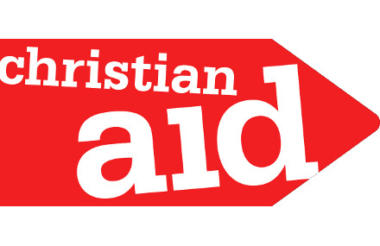Christian Aid has undertaken a restructure to achieve “substantive cost savings” including some redundancies, according to documents filed recently.
The charity’s latest report and accounts, running to March 2017, say it has reduced its number of full-time equivalent staff based in Britain, Ireland and Spain by 45 during the year, while it has increased its overseas-based workers by 22.
In 2016/17, Christian Aid spent £884,000 on redundancy and termination payments, up from £355,000 the previous year.
The accounts say the charity introduced a “recruitment freeze” earlier in the year to make cost savings.
Christian Aid is also continuing to undertake a global “corporate change programme”, whereby it is attempting to become a less “London-centric” charity.
Loretta Minghella, the charity’s former chief executive, says in her introduction to the accounts that post-Brexit exchange rates and the end of the charity’s £36.2m five-year contract with the Department for International Development led to the restructure.
She says: “The drop in value of the pound since the Brexit vote and the completion of our most recent Programme Partnership Agreement with the Department for International Development, has meant that we have had to undertake a restructure to achieve substantive cost savings.
“Our finances are now more resilient to the type of exchange rate shock that followed Brexit and we have secured a number of new institutional grants for programmes which commence in the current year.
“We are also embarking on a significant programme of change to the way we are governed, on a continuing journey to become a truly global partnership rather than a London-centric organisation.”
Christian Aid did plan ahead for the drop in the pound following the EU referendum result by creating a £1.2m foreign exchange stabilisation fund in 2015/16 to mitigate such a currency fluctuation.
The charity is yet to dip into these savings but expects to do so in 2017/18.
Its accounts say: “The impact on programmes of the devaluation of sterling in 2016/17 has been met within our existing budgeting processes, through the use of hedging instruments. However, the ongoing impact of a weaker pound means we anticipate drawing down on the stabilisation fund in the coming year.”
Drop in fundraising income
Overall, Christian Aid’s income dropped by £10m to £97m, which it puts down to there being fewer high-profile humanitarian crises and therefore less money donated.
It says: “Donations fell sharply, in a year with fewer high-profile humanitarian crises. However, institutional funding in the form of grants from institutions remains a growing source of income.
“With the end of the six-year £27m Poorest Areas Civil Society Programme in India, income earned from institutional contracts also fell away.”
The charity still managed to achieve a surplus, as its expenditure fell from £100.4m to £93.6m, a 7 per cent drop.
It says: “Expenditure on staff costs remained broadly in line with the previous year, although the Corporate Change Programme reduced establishment levels by close to 5 per cent by the end of the year.
“As a consequence, we anticipate a reduction in staffing costs funded from unrestricted funds in the coming year.”
Related articles












